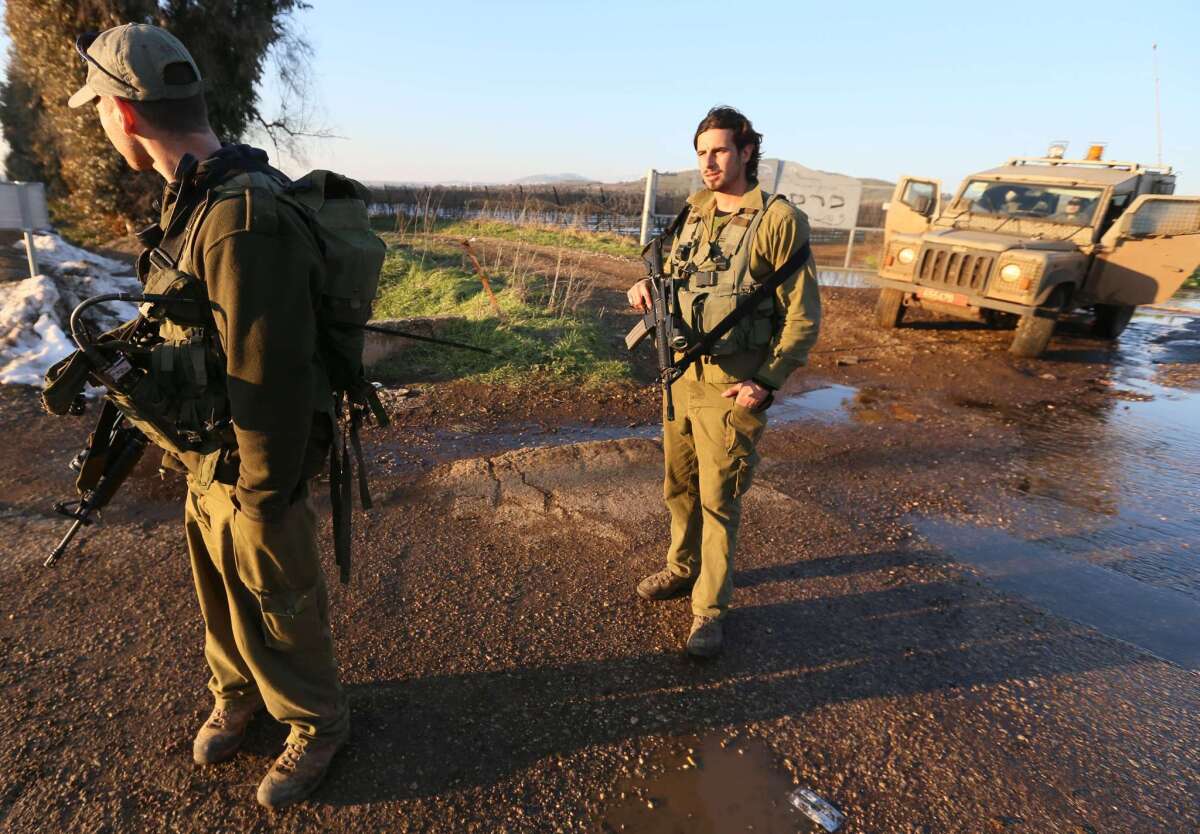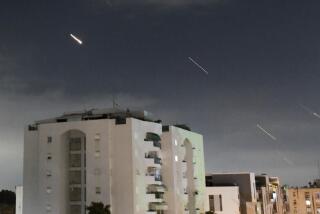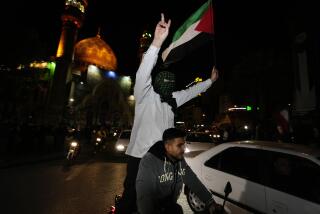Israeli airstrike in Syria said to have killed Hezbollah officials

Israel’s military carried out an airstrike in Syria on Sunday that killed at least seven people, including Hezbollah field commanders and several Iranians, according to Lebanese news reports that Israel neither confirmed nor denied.
Hezbollah confirmed that “several of its fighters were martyred” in the operation, according to Al Manar TV, Hezbollah’s media wing. The targeting of prominent Hezbollah figures could have significant ramifications for peace in the region.
According to Lebanese security sources quoted in the Daily Star, the fatalities included Jihad Mughniyah, the son of a senior Hezbollah official, Imad Mughniyah, who was assassinated in a 2008 bombing that the organization blames on Israel. Others among the dead were reported to be a Hezbollah field commander known as Abu Issa, and Abu Ali Tabtabai, an Iranian field commander.
Al Manar, citing a Hezbollah statement, reported that Israeli helicopters fired at a group of Hezbollah fighters who were inspecting the town of Mazraat al Amal in Syria’s Quneitra region, in the Golan Heights. Hezbollah did not announce the names of those killed.
The Lebanese channel Al Mayadeen reported that the Israeli helicopter fired two missiles. Other reports said two Israeli reconnaissance aircraft were seen circling the area before the strike, which destroyed a Hezbollah vehicle and damaged another.
Lebanon-based Hezbollah has dispatched militiamen to Syria to fight on behalf of the government of Syrian President Bashar Assad, who is facing an almost four-year insurgency backed by the United States and its allies. The presence of well-trained Hezbollah fighters in Syria has been a major boost for Assad’s government and its thinly stretched military.
Hezbollah, a Shiite group, is a client of Shiite Iran, a major backer of Assad’s government.
The response from Israel’s military was standard: “The army does not comment on foreign reports.” In an interview with Israeli media, Defense Minister Moshe Yaalon would not comment on the reports but said, “Hezbollah should explain what it’s doing on Syrian soil.”
Early speculation suggested the strike was intended to thwart rocket fire into Israel, but the convergence of a large group of high-ranking personnel including Iranians could point to a larger plan. It was not immediately clear who or what the main target was.
Hezbollah recently appointed Jihad Mughniyah commander of the organization’s fighters in Syria’s Golan region, where rebel forces and Assad loyalists have battled fiercely for control, bringing the fighting closer to Israel. According to Israeli media, Mughniyah was behind a chain of recent attacks along Israel’s borders with Lebanon and Syria.
The reported strike comes only days after Hezbollah leader Hassan Nasrallah threatened to retaliate against Israel for repeated strikes on Syria.
Previous strikes attributed to Israel were believed to target shipments of strategic weapons from Syria to Hezbollah. The most recent such strike was reported last month.
Speaking to the Al Mayadeen outlet, Nasrallah said that Hezbollah was stronger than ever and that its arsenal includes Fateh-110 missiles with a range of 125 miles, capable of hitting deep into Israel. Nasrallah said the organization had obtained the weapons after Hezbollah and Israel fought a monthlong war in 2006.
Nasrallah said Hezbollah was ready to fight Israel again, including inside Israeli territory. The Lebanese channel Al Manar called the strike a “foolish venture” that could destabilize the whole region.
Hezbollah has pledged to avenge the death of Imad Mughniyah. Although the organization has largely avoided directly engaging with Israel since the last war, several plots against Israeli or Jewish targets abroad were uncovered in recent years, including in Cyprus, Thailand, India and Azerbaijan.
Earlier Sunday, a separate incident was reported along Israel’s border with Lebanon. Lebanese soldiers said Israeli soldiers in a military outpost a few dozen yards from the border fired tear gas and smoke grenades toward the Lebanese position. Three Lebanese soldiers required medical treatment.
Israel’s military was looking into the report, a representative said, speaking on traditional condition of anonymity.
Sobelman is a special correspondent. Times staff writer Patrick J. McDonnell in Beirut contributed to this report.
More to Read
Start your day right
Sign up for Essential California for news, features and recommendations from the L.A. Times and beyond in your inbox six days a week.
You may occasionally receive promotional content from the Los Angeles Times.






